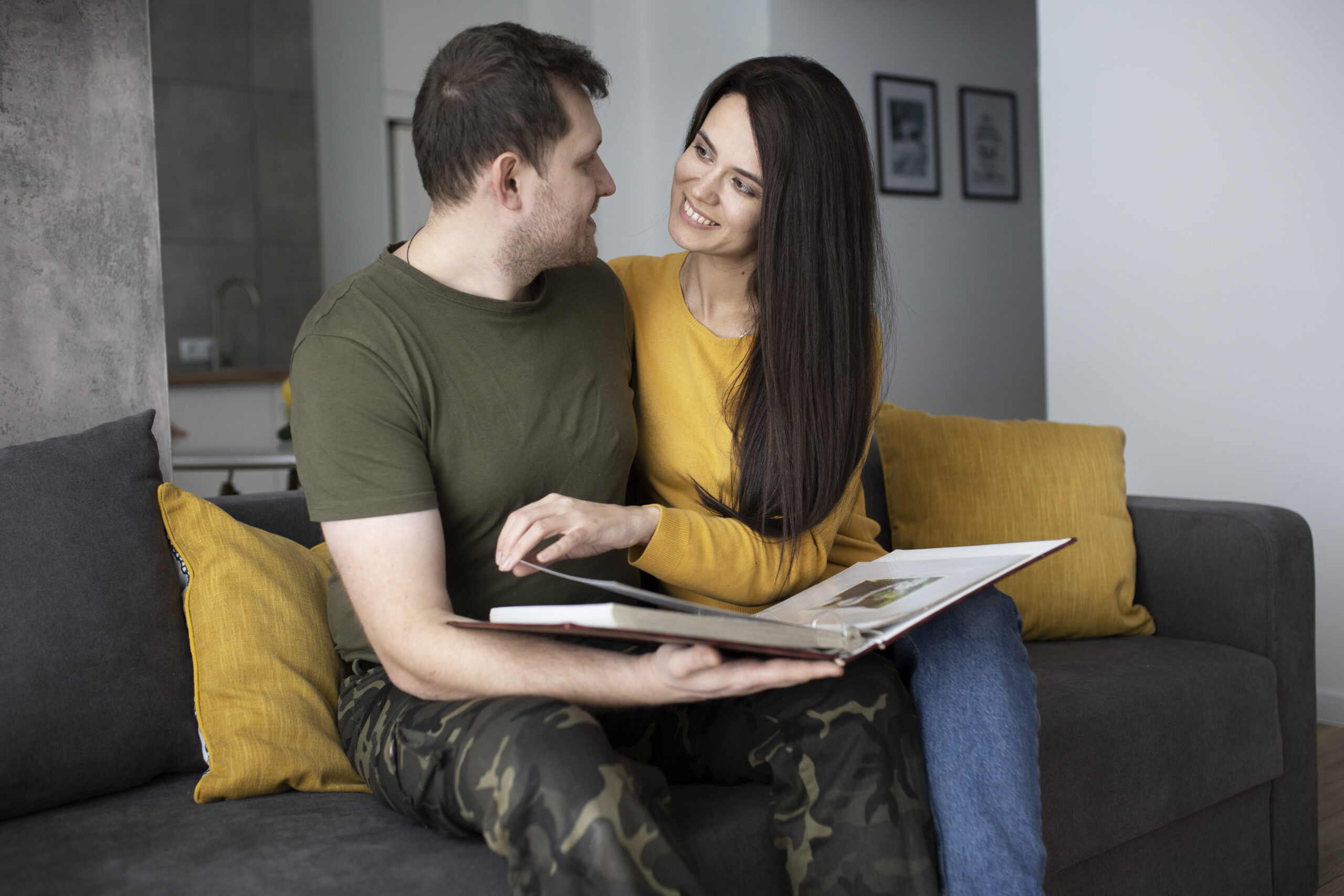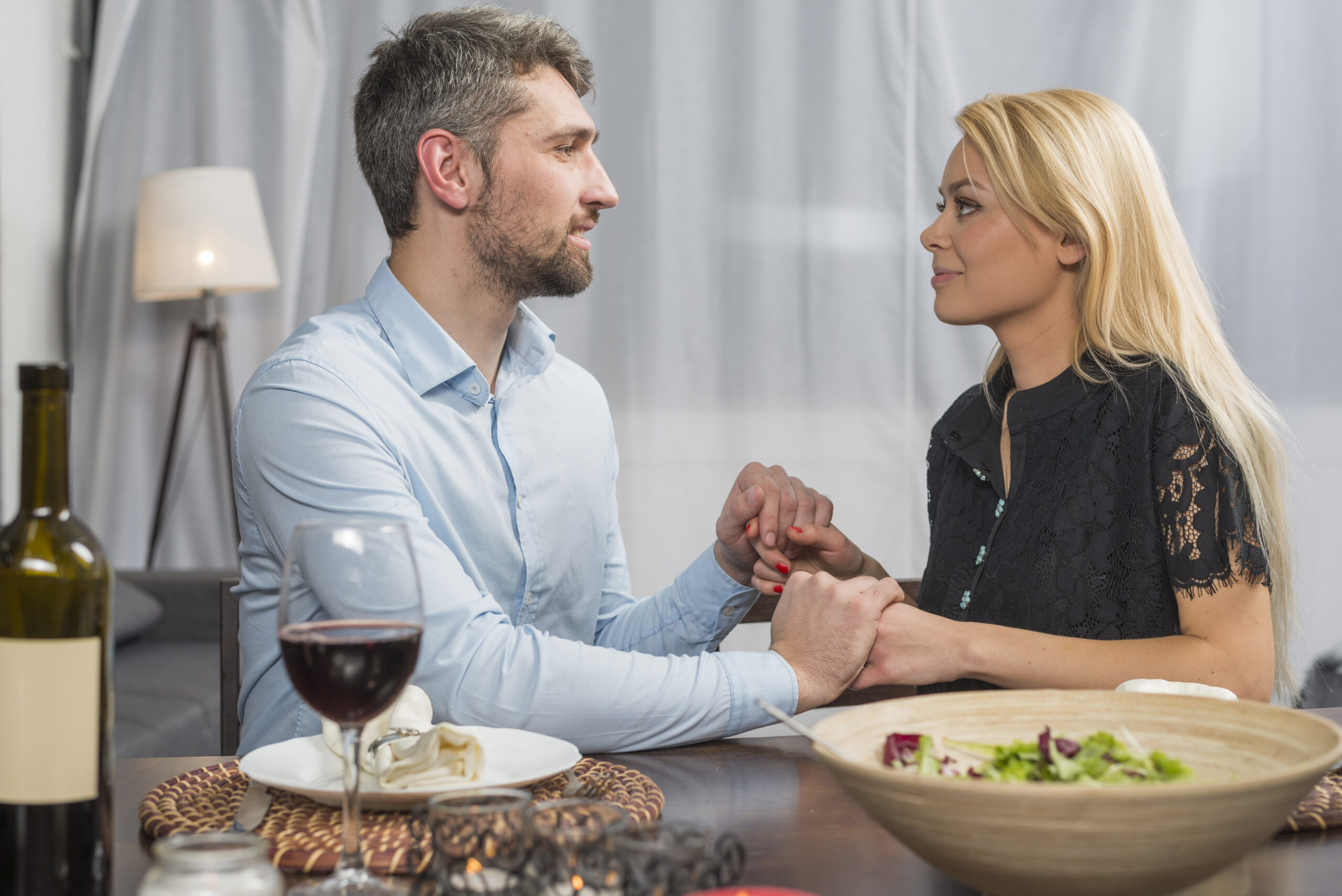Couples Counseling for Long Distance Relationships and Marriages
Intimacy, trust, and emotional connection are essential in any relationship — but when two people are separated by cities, countries, or continents, those foundations are constantly tested. Whether the distance is due to career moves, immigration barriers, or simply the unpredictability of life, long-distance relationships require a higher level of intention, patience, and emotional resilience.
It’s natural to wonder if love can truly thrive without physical presence. The truth is, it can — but not without conscious effort. When video calls start to feel like routines, and texting no longer captures emotional depth, the relationship may begin to feel strained or disconnected.
That’s where couples counseling for long distance relationships comes in. Far from being a last resort, therapy can serve as a powerful tool — helping partners communicate more openly, navigate emotional triggers, and reconnect on a deeper level despite the miles between them. In many cases, it becomes the emotional anchor that keeps love grounded when physical closeness isn’t an option.
The Real Challenges Behind Long-Distance Love
Maintaining a relationship across cities, countries, or continents may seem easier in today’s world of instant messaging and video calls. But anyone who’s been in a long-distance relationship knows that staying connected emotionally requires more than just digital tools. The physical separation often magnifies emotional gaps that would be easier to bridge in person.
Many long-distance couples struggle with miscommunication and assumptions. Without body language or tone in daily interactions, even simple conversations can be misread, leading to frustration or hurt. Over time, these small misunderstandings can accumulate, creating tension where none was intended.
Another major challenge is differing expectations. One partner may assume they’re moving toward marriage, while the other is focused on their career or personal growth. If these goals aren’t openly discussed, resentment can quietly grow. This is especially true in long-distance marriages, where the stakes are higher and clarity is crucial.
Trust issues can also be harder to manage when physical reassurance is missing. Past betrayals, jealousy, or simply the anxiety of not knowing what your partner is doing can create emotional distance.
Then there’s the absence of shared routines. Relationships thrive on everyday moments — cooking dinner together, unwinding after work, laughing over a shared TV show. Without these rituals, partners can feel like they’re living parallel lives.
All of this can lead to a feeling of emotional disconnection. Even couples who love each other deeply may begin to feel more like pen pals than partners. When casual check-ins start to feel like formal updates, and phone calls become draining instead of nourishing, something needs to shift.
That’s where long-distance couples therapy comes in — not just to solve problems, but to create a space for reconnection, honest communication, and emotional rebuilding.
A Reddit Story: Rebuilding Trust Across Time Zones

One Reddit user shared her experience of being married for two years, living in different cities for work. Initially, the distance felt manageable. But soon, she noticed her partner withdrawing emotionally and replying late to texts. Fights became more frequent, centered around “not feeling heard” or “being too busy.”
Therapy helped them get beneath the surface. With the guidance of a counselor, they learned their love languages differed. She needed frequent check-ins and emotional validation. He needed more space and felt overwhelmed by constant communication. Therapy didn’t change the distance, but it changed how they responded to it. They began scheduling dedicated “connection time,” rather than just texting randomly.
The result? Fewer misunderstandings. More empathy. And surprisingly, a deeper emotional connection than they had when living under the same roof.
Why Long Distance Couples Therapy Works
Contrary to what many think, therapy doesn’t require both partners to be in the same room. Online long distance marriage counseling is now widely available, often conducted over secure video platforms. The flexibility allows both partners to participate from anywhere, making it ideal for couples living apart.
A licensed clinical psychologist like Dr. Harel, who specializes in relationship dynamics, understands how emotional patterns play out over distance. Instead of only focusing on surface-level disputes, therapy dives into the emotional undercurrents that drive those arguments.
Therapy for long distance couples focuses on:
- Rebuilding emotional safety even without physical closeness
- Improving communication patterns that feel one-sided or reactive
- Addressing attachment styles and how they influence long-distance behavior
- Creating shared goals and timelines that keep the relationship moving forward
- Navigating transitions like relocation, immigration, or reunification plans
Here’s a more detailed and emotionally resonant version of your section, keeping the structure but adding depth and empathy:
Common Misconceptions That Hold Couples Back

Many long-distance couples delay therapy out of fear or misunderstanding. Thoughts like:
- “We’ll wait until we’re in the same city.”
- “Therapy will just make our problems feel bigger.”
- “We’ve done this before — we can get through it again.”
…often keep them stuck in silent patterns of disconnection.
But postponing emotional work doesn’t make the distance easier. In fact, it can quietly erode the relationship. Unspoken resentments, misread texts, or missed calls begin to pile up. What starts as minor friction — like a delayed response or forgotten check-in — can spiral into feelings of being unappreciated or unloved. Couples therapy offers a neutral, safe space to unpack these moments before they become long-standing wounds. It’s not about assigning blame — it’s about restoring emotional clarity.
Navigating Emotional Mismatches

Long-distance relationships often magnify emotional differences. One partner may crave frequent contact, while the other feels overwhelmed by constant messaging. Without physical presence to bridge the gap — a reassuring touch, a shared routine — these mismatches can feel sharp and deeply personal.
A Reddit couple described how the girlfriend’s need for connection via texts felt controlling to her boyfriend, while his short responses made her feel unwanted. Beneath their behaviors were deeper fears — hers of abandonment, his of inadequacy. In therapy, they learned to recognize these patterns and respond with empathy instead of defensiveness.
That’s what therapy provides: not just communication tools, but emotional understanding. It helps partners meet each other where they are, not where they assume the other should be.
The Role of Rituals and Structure
Without shared physical space, couples need intentional rituals to keep the relationship alive. These aren’t superficial gestures — they’re emotional anchors.
- Weekly Zoom dates, even if just to eat dinner together
- Morning voice notes or nightly “goodnight” texts
- Surprise letters, thoughtful care packages, or digital photo albums
- Watching the same movie while on call, or making a shared playlist
These small, consistent acts of care can re-establish intimacy. Therapy can help couples design rituals that reflect their unique personalities, time zones, and emotional bandwidth. In long-distance love, structure creates stability — and stability creates space for vulnerability.
How Long Distance Counseling Strengthens Marriages
For married couples, especially those separated due to work assignments or visa processes, long distance can create unique stressors — especially if children are involved.
Long distance marriage counseling provides a safe space to:
- Work through loneliness and emotional detachment
- Manage financial or logistical strains
- Discuss infidelity fears or past betrayals
- Keep the emotional bond alive through intentional communication
Dr. Harel often sees that couples in long distance marriages suppress emotional needs just to “get through the day.” Over time, this leads to a silent drift. Therapy brings those needs back into the conversation — without shame.
Therapy Helps You Plan the Future

It’s common for long distance couples to feel stuck in the “in-between.” Therapy can help you explore:
- What’s the long-term plan?
- Are we moving toward living in the same place?
- What sacrifices are we each willing to make?
- What are our non-negotiables?
The goal isn’t to rush decisions. It’s to create shared clarity. When both partners know they’re on the same team, the distance feels less like a burden and more like a phase they’re navigating together.
Why Choose Dr. Harel
Dr. Harel offers a compassionate, personalized approach to therapy. Whether you’re dating long distance or in a long-term marriage, his sessions are designed to help you rebuild trust, reconnect emotionally, and make your relationship more resilient — not despite the distance, but because of how you grow through it.
His background in trauma-informed therapy and deep understanding of LGBTQIA+ and intercultural relationships makes his practice inclusive and safe for all couples.
Final Thoughts
Long distance relationships and marriages are not doomed by geography. But they do need more intentional care, emotional insight, and structured support. Therapy isn’t just for couples in crisis. It’s for any couple who wants to thrive — even when they’re apart.
With the right support, communication strategies, and emotional tools, you can transform your long distance relationship into one of emotional depth, maturity, and lasting love.
Frequently Asked Questions (FAQs)
- Can long distance therapy really work if we’re in different time zones?
Yes. Therapists like Dr. Harel are flexible and often accommodate different time zones. Sessions can be scheduled during overlapping hours that suit both partners, ensuring consistent and meaningful work. - What if only one partner is open to therapy?
It’s not uncommon. If one partner starts individual therapy first, it can often motivate the other to join later. In some cases, individual counseling can still bring major shifts in the relationship dynamic. - Is online counseling as effective as in-person therapy?
Absolutely. Most long distance couples use online platforms, and research shows that virtual therapy is just as effective. The key is consistency and finding a therapist who specializes in relationship issues. - How long does couples counseling typically last?
There’s no fixed timeline. Some couples benefit from short-term therapy over 8 to 10 sessions, while others engage in longer work depending on their needs and goals. - Will therapy help us decide if we should stay together?
Yes. Therapy offers a space to evaluate your emotional needs, compatibility, and vision for the future. It’s not about pushing couples to stay together or separate, but about gaining clarity and emotional alignment.
If you’re in a long distance relationship or marriage and want to deepen your connection, therapy with Dr. Harel can help you build a love that grows stronger — no matter the distance.

Leave a Reply